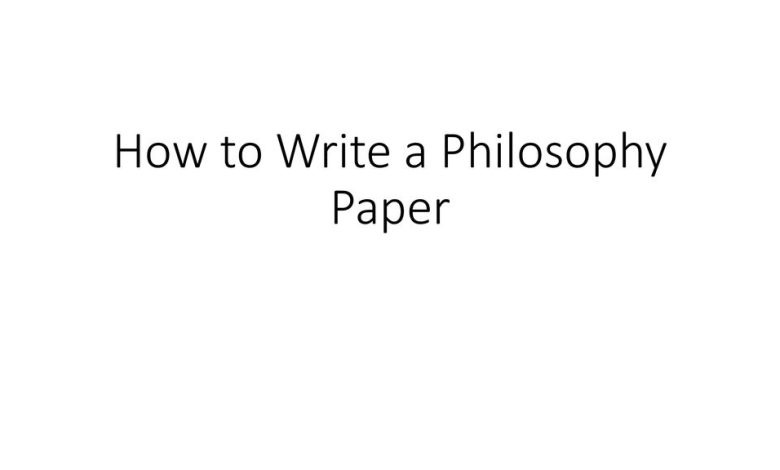Ultimate Guide to Writing a Philosophy Essay
Guide to Writing a Philosophy Essay

Philosophy essays are quite different from the traditional academic essay that all students are familiar with. It requires a student to answer the question precisely in structured arguments instead of writing on a specific topic.
Therefore, students unaware of its details find writing this form of an essay quite challenging. If the above discussion seems similar, get thorough guidance to create the best pieces on – “how to write a philosophy essay?”
Developing a Philosophy Essay Paper
Before scribbling a philosophy essay, recognise the questions you must answer and review significant literature to collect sufficient content for an essay. Some popular philosophy essay topics include: Is there anything called heaven? What is next to death? Who is God?
If you look closely, you will recognise that every question offers sufficient scope to answer the question from various perspectives. Therefore, for excellent philosophy essay writing, you must consider the following.
- Understand multiple philosophy concepts, theories, and questions that various philosophers use.
- Practice critical thinking to form convincing arguments
- Develop answers to philosophy questions.
Essentially the composition of the philosophy essay is the objective of conducting the rigorous study. However, before you set on to writing your paper get used to your essay components, go through the essay question repeatedly and recognise the prompts like “compare,” “contrast,” or “describe” and what each means to say. It will provide philosophy essay help to build your paper accurately.
Take the following steps when you build a philosophy paper.
-
A thorough reading of texts
Recognising the content in your curriculum and other recommended reference texts is essential. Read the papers slowly and observe the crucial aspects such as questions, concepts, theories, and arguments.
-
Organise your ideas
Consider noting the essential details as you go through the texts and then arrange the ideas for the paper logically. Finally, develop an outline to grab all the vital information you need in your argument.
-
Augment your thesis
Ensure that you include an exhaustive thesis statement that offers comprehensive facts about your position in the argument. Also, provide an outline highlighting the progress of your thesis in the introduction. It will help you achieve what you intend in the other parts of your essay.
-
Showcase your understanding through the accurate exposition
To develop an excellent philosophy essay, write a clear expository paper without making vague and careless omissions. For instance, if an essay mandates you to “outline and examine the ethical issues in abortion,” you must use evaluation and exposition techniques to build the paper.
-
Evaluate a philosophy theory critically
Before you begin examining the theory, analyse its strengths and weaknesses. Then, consider the arguments given by the philosopher to upraise the approach. Moreover, detect all critical remarks against the ideas and analyse how the philosopher has answered such claims.
-
Answer the philosophy questions
Some philosophy questions like “what is morality?” mandates justifying the validity of response to present the answers/. It means you need to evaluate theories along with creating the philosophy.
Format of a philosophy Essay
The philosophy essay format consists of an introduction, body, and conclusion. here is a short description of these sections.
-
Introduction
The introduction provides the reader with a snippet of the topic’s background. An introduction that holds your reader’s attention is best to allow their interests to develop for reading the content.
-
Thesis statement
A thesis statement sums up is an account that summaries the perspective you take to state the points in an essay. Ensure that your philosophy essay is debatable and provide arguments highlighting both sides of the claim.
A thesis statement typically stands as the final sentence in the introductory paragraph and is also a guideline of things to be discussed throughout the paper. Some prominent examples of a thesis statement are: “religious beliefs impact COVID-19,” “ethics are a must in contemporary society”, and “going to religious establishments cannot take you to heaven.”
-
Conclusion
The conclusion links a summary of the primary points in the paper. Also, consider that the end may incorporate a restatement of a thesis using other words to highlight your perspective on the topic to the readers.
Strategies for Writing a Philosophy Essay Paper
To build an outstanding essay, you must adhere to the stated guidelines, as explained below.
-
Adequate preparation for the paper
At this stage, you are supposed to read relevant literature and materials regarding the topic. Moreover, before you think of composing your essay, it is vital to create an outline with your notes. Preparing in advance determines the argument you will make in the paper.
-
Do extensive reading and discussion
Go through all the topics’ resources to get acquainted with the expectations to answer the questions. Therefore, note crucial ideas and arguments as you scan over the papers. Conducting in-depth research on the topic ensures your reader about your seriousness to the content you craft and that you can add value to them.
-
Be mindful of your audience
Do you think your audience is readers with a superficial idea of the topic? If yes, then you are mistaken. Your audience includes your classmates and your professors. Similarly, don’t get frightened to think that your readers know all about the topic of the arguments you are about to place in your essay.
You may open their eyes to a new concept or perspective on the essay. Therefore, explain any new things you discuss, and ensure that the content you design is easy to read.
-
Outline your essay
Just like a blueprint help the engineer to build without moving away from how it is meant to be while working midway, the outline does the same for a philosophical essay. An outline helps make an error-free essay and have every essential thing in the right place without running off track and reducing the chance of omitting any essential element in the report.
-
Compose a strong thesis
A strong thesis makes the reader recognise what your paper includes and know its focus. It must be the last sentence of the essay’s first paragraph.
-
Prepare a draft
Once you have the outline ready, ensure that you draft your essay. It must have the summary and all other essentials to compose a paper from the introduction to the conclusion.
-
Write an introduction
After making the draft, come down to building your essay introduction. First, recognise the essentially of the opening sentence in your essay; it showcases your work to your readers. It also catches your readers’ attention and urges them to read your paper further.
-
Support your thesis
A philosophy essay introduction ends with a thesis statement. An excellent thesis must move forward with ideas that back up or move against the argument. Ensure that you write down relevant points to support your argument.
-
Draw a conclusion
Conclude your philosophy essay by summing up the primary points of your paper. Also, showcase the importance of your essay and zoom in on the crucial points to your audience.
Final Thoughts on a philosophy Essay,
A philosophical essay is an academic essay that includes highlighting and supporting a specific claim throughout the paper. This paper’s structure must have an introduction, body paragraphs, and conclusion.



